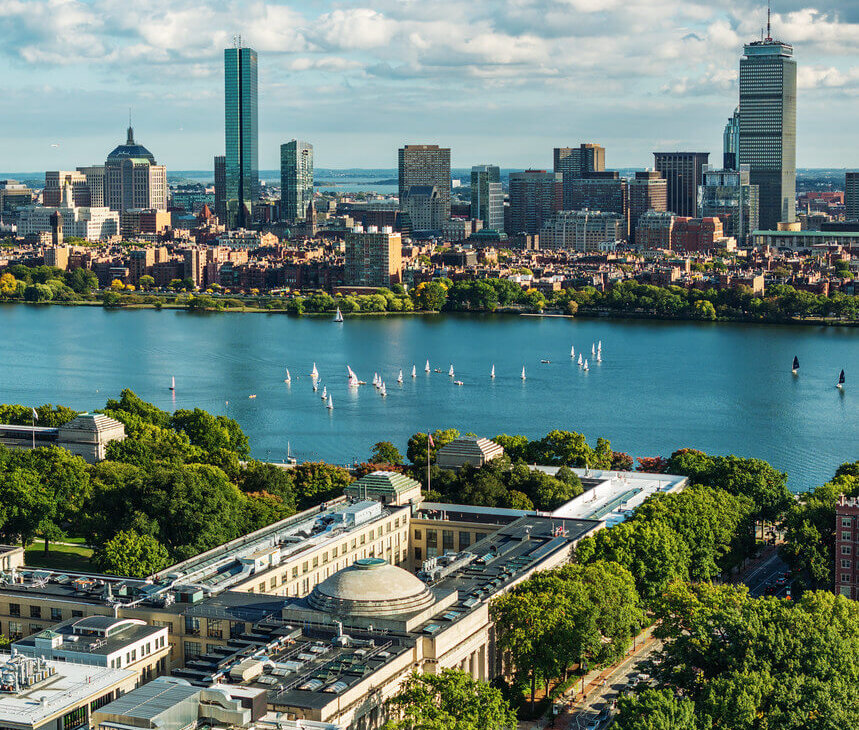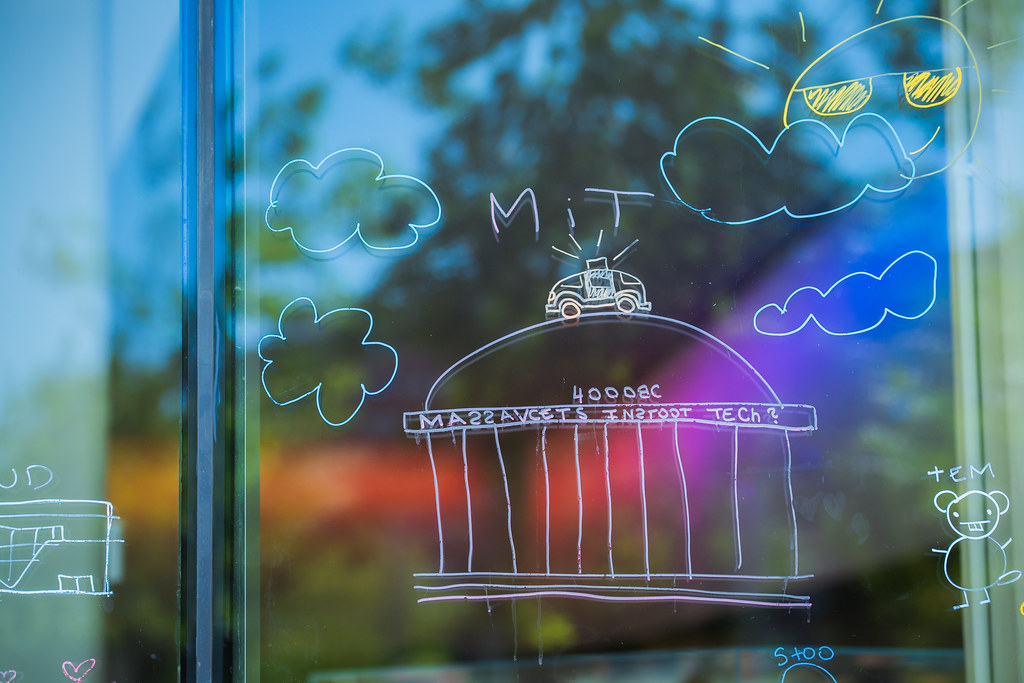SHASS/MISTI Global Classroom awards funding to four projects
The new pool of funding supports Independent Activities Period subjects abroad led by SHASS faculty or teaching staff.

Four projects have been awarded funding through an inaugural round of grants from the SHASS/MISTI Global Classroom.
The School of Humanities, Arts, and Social Sciences created the new pool of funding to support (IAP) subjects abroad led by SHASS faculty or teaching staff. SHASS/MISTI Global Classrooms are 2- to 4-week experiences that may take the form of a credit-bearing course; a student trip related to an on-campus, semester-long course; or a standalone non-credit-bearing student workshop. While some Global Classrooms explore “grand challenges” such as climate change, sustainability, and health, others focus on language, culture, and history.
Through an annual call for proposals, up to four projects are selected to receive $25,000 each toward course implementation. The next call for proposals will open February 2, 2026, with an application deadline of May 4, 2026.
The following projects have been awarded funding and will take place during IAP 2026, unless otherwise noted:
Ancient and Modern Japan, led by MIT historian and Mitsui Career Development Professor Hiromu Nagahara, offers MIT students a once-in-a-lifetime opportunity to visit some of the most important sites connected to key events in Japanese history and to experience, in person, the legacies of the complex and dramatic forces that have shaped the country during the past two millennia. Over the course of 15 days, students will be based in three major metropolitan areas: Tokyo (Japan’s political capital since 1603 and the world’s largest city), the Kyoto-Nara region (the site of Japan’s ancient and medieval capitals), and Hiroshima (the site of the first atomic bombing in history).
In each of these areas, students will visit major historical sites that bear witness to past events and continue to shape Japan today (such as the Imperial Palace and the National Diet in Tokyo), museums and archives that preserve historical documents and objects (including the over-1200-years-old imperial storehouse in Nara), and interact with Japanese individuals who are personally connected to major historical events (such as a conversation with an atomic bomb survivor in Hiroshima).
Students will also receive Japanese-language instruction aimed at enhancing their historical exploration in Japan by providing lessons on key vocabulary and linguistic concepts that are connected to their destinations. The trip also includes in-person, multi-day interactions with students at Keio University in Tokyo, with whom the MIT participants will collaborate in processing and articulating the insights they have developed over the course of their trip. It is non-credit bearing. The course runs from January 10-26, 2026.
Race, Place, and Modernity in the Americas, led by Literature lecturer Joaquín Terrones, is a for-credit 9-unit IAP course based in São Paulo, Brazil. It explores how race, place, and memory have shaped the development of modern Brazil and the U.S. Through the study of literature, film, visual art, and performance by Black and Indigenous creators—especially women and queer artists—students will examine how art and cultural activism have an impact on racial justice issues. Designed as an immersive and interdisciplinary learning experience, the course pairs seminar-style morning discussions with afternoon fieldwork and weekend trips, allowing students to connect their classroom insights with lived histories.
Activities include visits to cultural and historical sites, interactive workshops, and in-depth conversations with local scholars, artists, religious leaders, and activists. Students explore issues such as urban segregation, environmental racism, incarceration, land sovereignty, and reparations not only in the classroom but through dialogue with those working to address these issues on the ground. The course’s comparative and hemispheric lens invites students to reflect on their own lives, practices, and values while discovering new frameworks for building community and solidarity across borders.
Open to all, the course consistently attracts underrepresented minority students, first-generation college students, low-income students, and LGBTQ+ students—populations that are significantly underserved by study abroad programs nationally.
The Making of Roman Pompeii, led by MIT historian Will Broadhead, along with Admir Masic (Computer Science and Electrical Engineering), Linda Rabieh (Concourse), and Mike Tarkanian (Department of Materials Science and Engineering), takes students to the uniquely well-preserved archaeological site of Pompeii, which serves as a classroom and laboratory for an integrated humanistic and scientific exploration of the ancient city, allowing for a deep dive into the “making” of Roman Pompeii on several levels: political, architectural, artistic, economic, ethical, material, and traditional. The program unites and expands two extracurricular programs that have long existed in parallel: The IAP in Ancient Italy program, which has taken students on an archaeological study tour of Rome and Pompeii, adopting a space-and-society approach to the political, social, and cultural history of the built environment; and an extracurricular program supplemental to the Materials in Human Experience subject, which has taken students to Rome and Pompeii for real-world analyses of ancient infrastructures and materials and what they might teach us about future sustainability. This new program provides a freshly holistic appreciation of the making of a physical and social community at Pompeii. The program will include four days in Rome and eleven days at Pompeii (including one-day excursions to Herculaneum and to the National Archaeological Museum in Naples).
Berlin: Cultures and Countercultures, led by lecturer in German Emily Goodling, will take students to Berlin for two weeks during IAP 2027 to explore a century of art, thought, and politics in this unique city. Berlin: Cultures and Countercultures will thrust students into the heart of what has made Berlin so controversial, and so compelling, over the course of the 20th and 21st centuries. Whether as a hotbed of sexual freedom during the 1920s, a city split by a wall into East and West, a hub for start-up culture and technological development, or the current political capital of Germany, Berlin has consistently expanded our conceptions of national identity, political resistance, and cultural production. During the trip, students will encounter this radically diverse city as a plurality instead of a monolith.
The course will be arranged around topical modules, each designed to offer insight into particular social spaces, historico-political moments, and/or artistic movements: politics, party spaces, architecture, memory, art, and identities. Students will spend the first portion of their days in an intensive, interactive classroom, building up the knowledge and interpretive frameworks they will need to understand the multilayered city around them. During their afternoons, and some evenings, they will develop this knowledge through on-the-ground experiences and engagement, including site visits, performances, museums, and above all self-guided tasks, projects, and exploration. The class will be 6 units, with the option to add on another 3 units as an independent study.
These four new SHASS/MISTI Global Classrooms are among many other MISTI Global Classrooms listed here.
No related posts found.
Share a Story
Do you have a story to share about an event, a publication, or someone in the community who deserves a spotlight? Reach out to the SHASS Communications Team with your idea.
Email SHASS Communications